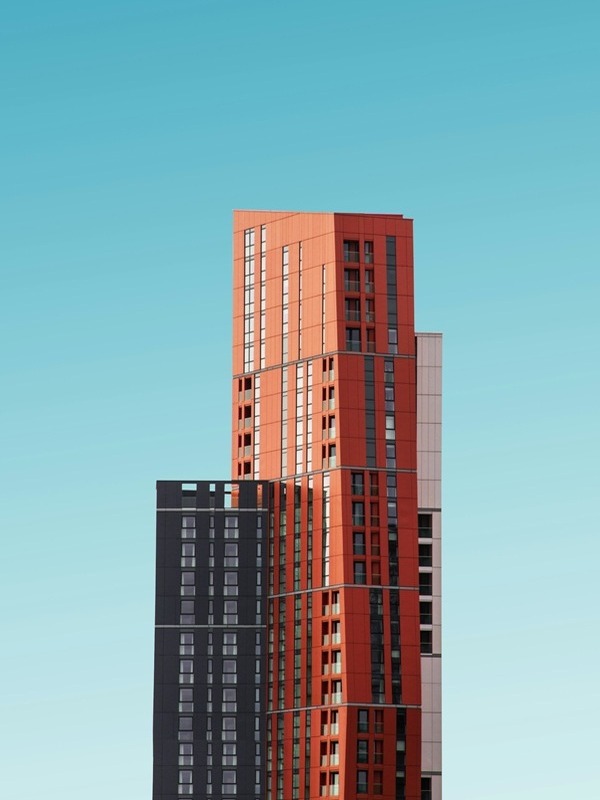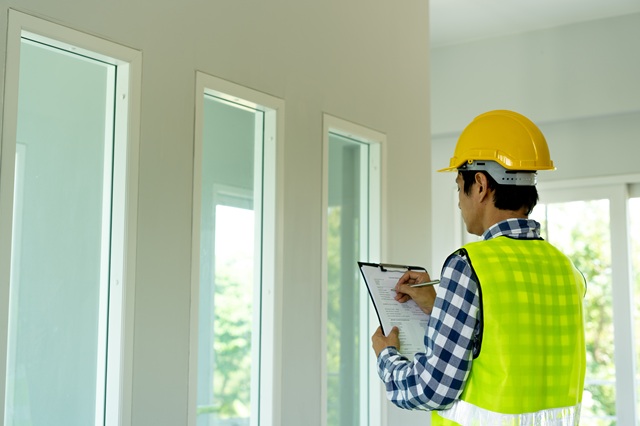Dilapidations and Repair Disputes
- Specialist solicitors in London, handling dilapidations and repair disputes for commercial properties
- Safeguarding client interests while minimising financial risks
- Proactive in achieving fair resolutions and maintaining valuable business relationships
- Bespoke strategies tailored to manage and resolve disputes efficiently
- Clear fee structures and flexible payments
- Book a free 30-minute consultation
BOOK A FREE CONSULTATION
We do not offer Legal Aid.










We will always get the best possible result for our clients!
We represent you with a proactive & forward-thinking mindset.
Expert Guidance on Property Dispute Challenges
Expert Guidance on Property Dispute Challenges
Property disputes, particularly those involving dilapidations and repairs, are inherently complex and can significantly impact your business operations and financial health. Navigating these disputes requires a deep understanding of property law.
Osbourne Pinner Solicitors, with a dedicated team based in London, are experts in this field. We provide legal advice and representation tailored to protect your assets and ensure compliance with all relevant property regulations.
Whether negotiating settlements or representing clients in court, our approach is always aligned with your best interests. For a comprehensive review of your case and expert advice, contact us at [email protected] or call 0203 983 5080.
Leverage our experience for a no-obligation, free 30-minute consultation and discover how we can support you in resolving these disputes efficiently. We provide video calls or you can visit our offices in Piccadilly Circus, Harrow or Canary Wharf.
Free Initial Consultation
Payment Plan Options
Clear Advice
Swift Resolution
Understanding Dilapidations and Repair Disputes
Dilapidations refer to a specific type of property dispute that occurs at the end of a commercial lease, concerning the condition of the property and the obligations of the tenant to undertake repairs or reinstate modifications made during the tenancy. These disputes can arise from disagreements over the interpretation of lease terms related to the state of repair and maintenance obligations.
It is crucial for both landlords and tenants to understand their rights and responsibilities as these are typically outlined in the lease agreement. The process often involves assessing the property against the agreed lease conditions, identifying any breaches and determining the extent of any repairs needed.
Landlords may claim dilapidations to ensure their property is returned in a suitable condition, often requiring financial compensation if the property’s state does not meet the terms stipulated in the lease. Conversely, tenants must be aware of these conditions from the start of the lease to adequately plan and budget for any necessary end-of-lease obligations. Misunderstandings or neglect can lead to significant financial implications and disputes at the end of a lease period.

Legal Framework for Dilapidations Claims

The legal framework governing dilapidations in the UK includes statutory obligations under the Landlord and Tenant Act 1927, as well as various case law and common law precedents. These laws provide a basis for what constitutes fair wear and tear versus what is considered neglect or damage that goes beyond the normal usage expected during a tenancy.
Key aspects of the legislation include the right of the landlord to claim for damages resulting from dilapidations and the requirement for tenants to adhere to the covenants of repair outlined in their lease. The Property Litigation Association also offers protocols to encourage fair and efficient handling of dilapidation claims, aiming to resolve disputes without court intervention whenever possible.
Understanding these legal principles is vital for both parties to manage their expectations and responsibilities effectively throughout the tenancy and especially towards its conclusion.
Strategic Negotiations
Dilapidations cases often involve several complex challenges:
- Assessment of Repair Scope
Determining the scope of necessary repairs is often contentious. Landlords may demand comprehensive refurbishments, whereas tenants typically advocate for more minimal repairs, leading to disagreements over the extent of necessary work.
- Quantification of Damages
Calculating repair costs or tenant compensation is challenging. Discrepancies often arise from differing expert opinions on costs, leading to disputes over the financial estimates provided by surveyors or contractors.

- Timing of Claims
The timing of dilapidation claims can create conflicts, especially if landlords delay claims, preventing tenants from performing repairs themselves. This can lead to escalated compensation demands.
- Lease Agreement Clarity
Lack of clear terms in lease agreements regarding maintenance responsibilities can lead to disputes. Ensuring all terms are explicit and understood by both parties is crucial to avoid conflicts over property conditions and responsibilities.
- Documentation and Inspections
Maintaining detailed records and conducting regular inspections throughout the lease term are essential. These practices help in documenting the property’s condition from the start and throughout the lease, which is beneficial in minimizing disputes during lease termination.
The Role of Solicitors in Managing Dilapidations Disputes
Solicitors specialising in property law are integral in managing dilapidations disputes. They bring essential expertise to the table by interpreting lease documents and advising clients on their legal rights and responsibilities. Their guidance is invaluable through the negotiation and dispute resolution processes. A key aspect of their role includes the meticulous evaluation of claims. Solicitors review the lease agreement in detail to clarify the extent of the tenant’s responsibilities toward repairs and reinstatements. This thorough assessment forms the cornerstone for any negotiations or disputes that may arise at the end of the lease.
Another significant responsibility of solicitors is the preparation of documentation. They prepare detailed schedules of dilapidations that list the required repairs or other obligations. For this, solicitors collaborate with qualified surveyors to ensure these documents are precise and comprehensive, serving as critical tools in negotiations or court proceedings. Furthermore, they play a pivotal role in representation and negotiation. Skilled solicitors negotiate on behalf of their clients to reach settlements that minimise costs and forestall litigation. Should negotiations falter, they provide robust representation in court or arbitration, advocating tenaciously for their client’s interests.

Strategies for Resolving Dilapidations Disputes
Resolving disputes over dilapidations typically involves negotiation but there are several strategies that solicitors may employ to ensure a favourable outcome:
- Negotiation
Engaging in negotiations is often the first strategy employed to resolve dilapidations disputes. Solicitors guide this process, aiming to reach a mutually acceptable resolution before escalating to more formal methods, preserving relationships and reducing costs.
- Mediation
Mediation is a less formal approach, involving a neutral third party to facilitate discussions between landlords and tenants. This method is favoured for its ability to maintain business relationships and achieve agreement without the adversarial nature of court proceedings.
- Arbitration
When mediation fails or is deemed inappropriate, arbitration serves as an effective alternative. An arbitrator listens to both parties and delivers a binding decision, providing a resolution that is enforceable yet less contentious than full litigation.
- Litigation
If other avenues fail, litigation remains the last resort. Taking a case to court involves presenting evidence before a judge, who then makes a final, legally binding decision. This process, while comprehensive, can be lengthy and expensive, reserved for the most complex disputes.
Preparing for a Dilapidations Dispute

Preparation is crucial for effectively managing dilapidations disputes. Landlords and tenants should engage solicitors early, possibly even before the lease begins, to ensure all terms are clear and mutually agreed upon. This proactive approach helps in preventing misunderstandings and disputes later in the lease term. Conducting regular property inspections is another vital step. These inspections should occur throughout the lease to document and maintain the property according to the lease terms.
Additionally, keeping accurate records of all communications and agreements regarding the property’s condition and any repairs carried out is essential. This documentation proves invaluable when resolving any disputes that arise. By implementing these strategies and working with experienced solicitors, both landlords and tenants can manage the risks associated with dilapidations effectively, ensuring that obligations are met and interests are protected for both parties.
What Osbourne Pinner Can Do for You?
Expert Legal Advice and Support
Osbourne Pinner Solicitors provide expert guidance on dilapidations and repair disputes, ensuring clarity on your rights and obligations under lease agreements.
Effective Negotiation Strategies
Our solicitors specialise in constructive negotiations, protecting your interests while achieving amicable settlements to avoid the expense and disruption of court proceedings.
Robust Litigation Support
If disputes escalate, our experienced team offers strong legal representation, defending your interests in court to secure favourable outcomes.
Transparent Fixed Fees
We offer a fixed-fee structure, ensuring clear, predictable legal costs and helping you budget effectively without unexpected surprises.
Meticulous Case Management
Our solicitors handle every detail of your case with care, avoiding costly mistakes and ensuring compliance with all legal requirements.
Prompt Responses
We prioritise swift, effective support, offering consultations in London or via video call to resolve your concerns quickly.
Schedule Your Complimentary 30-Minute Consultation
Osbourne Pinner Solicitors provide expert legal advice and strategic solutions for resolving dilapidations and repair disputes. Claim your free 30-minute consultation, available in person at our offices in Piccadilly Circus (Central London), Harrow (North London) or Canary Wharf (East London) – or via video call – to explore how we can assist you in managing and resolving your dilapidation claims effectively.
To book your consultation, contact us at [email protected], call 0203 983 5080 or use this form.
- Proactive in achieving fair resolutions and maintaining valuable business relationships
- Bespoke strategies tailored to manage and resolve disputes efficiently
- Clear fee structures and flexible payments
- Book a free 30-minute consultation
BOOK A FREE CONSULTATION
We do not offer Legal Aid.
Dilapidations and Repair Dispute FAQs
It’s crucial to seek legal advice as early as possible when facing a dilapidations or repair dispute. Early legal intervention allows our specialised solicitors to:
- Assess potential risks and impacts to your business or property.
- Develop a strategic plan to address the issues before they escalate.
- Provide expert guidance to navigate through the complex legal and procedural requirements. Prompt engagement with a solicitor can prevent the dispute from leading to significant financial or legal repercussions, ensuring you are well-prepared to defend or assert your rights.
Osbourne Pinner solicitors are well-versed in a wide array of issues related to dilapidations and repair disputes, including:
- Claims for repairs required at the end of a lease.
- Disputes over the extent and cost of repairs.
- Negotiations regarding responsibility for dilapidations between landlords and tenants.
- Legal actions arising from failure to adhere to lease conditions on maintenance and repair. Our team applies their extensive knowledge of property law to manage and resolve these disputes efficiently, minimising disruption to your operations.
The cost of hiring a solicitor for dilapidations and repair disputes can vary depending on the complexity and duration of the case. At Osbourne Pinner, we offer clear, fixed-fee options for simpler matters and competitive hourly rates for more complex litigation. We strive to provide transparency in our pricing to ensure you understand all financial commitments upfront.
- Mediation: This is a less formal, voluntary process where a neutral third party helps both sides come to an agreement. It’s cost-effective and can help preserve professional relationships.
- Arbitration: In more complex cases, arbitration may be necessary. It involves a neutral arbitrator who listens to both sides and makes a binding decision based on the evidence presented. It’s more formal than mediation but typically quicker and less costly than court litigation. Our experienced solicitors can guide you through both methods to determine the most appropriate approach based on your specific needs, helping to achieve a resolution that aligns with your business objectives.
